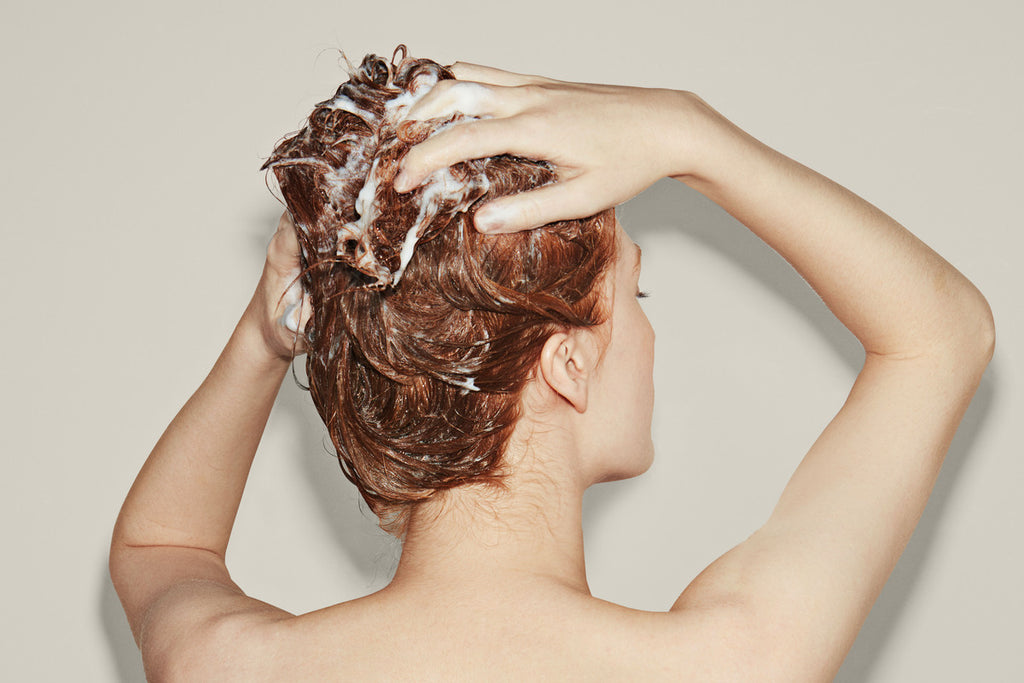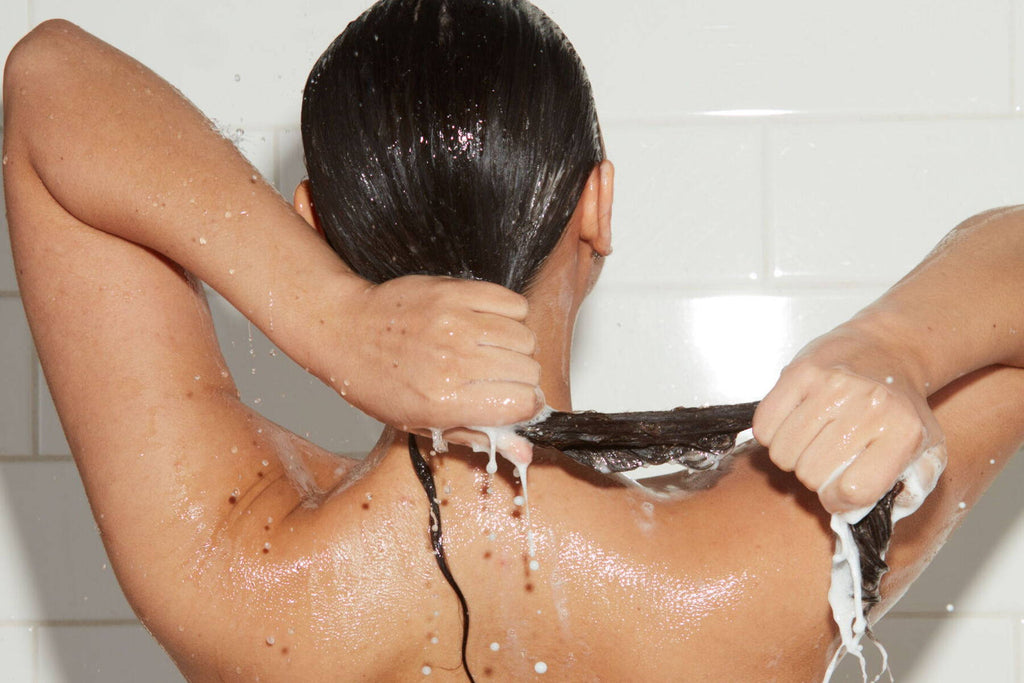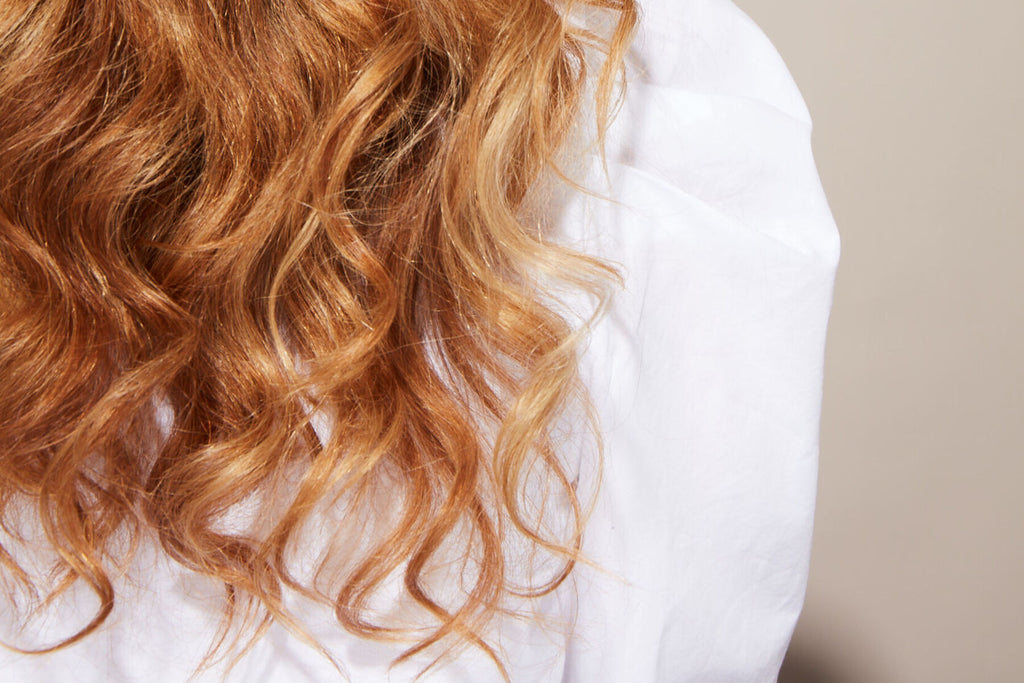Hard water is hard to avoid—apparently, 85% of us are showering with it. It may not be the most harmful thing your hair comes into contact with, but from dryness to split ends, it also isn’t doing your hair any favors.
The bright side? You don’t need to shell out for a fancy water softener to prevent hard water hair damage—a good clarifying shampoo (and a few other easy tweaks to your haircare routine) can do the trick.
Here’s everything to know about what hard water does to your hair, plus how to protect it.
What is hard water?
Hard water is water that contains a high concentration of minerals (usually calcium, magnesium and iron). It’s not inherently harmful or unhealthy—actually, drinking it might be good for you—but it does have its downsides. The mineral deposits in hard water can leave rings around your bathtub, residue on your dishes and, yes, even stick around in your hair.
What does hard water do to your hair?
Hard water minerals leave a film on your follicles, blocking moisture and nutrients from getting through. As a result, your hair may lose its shine and feel dry, frizzy and more prone to tangling. You might also experience breakage, thinning and faded color.
What does hard water do to your scalp?
The same mineral buildup that dries out hair can also dry out your scalp, leading to itchiness and flaking. If you have a sensitive scalp or a skin condition like eczema, you may be more likely to experience irritation.
Can hard water cause hair loss?
Hard water itself won’t make your hair fall out, but it can still mess with your hair in ways that might lead to hair loss. Hard water keeps moisture from getting into your hair, which can make it dry, brittle and more susceptible to breakage. Plus, the minerals in hard water can weigh down your hair at the roots, making it look flatter and thinner. If you already deal with scalp issues like eczema or psoriasis, hard water might make those problems worse and contribute to hair loss.
How to prevent hair damage from hard water
Hard water might be everywhere, but luckily it’s easy to reduce its effects on your hair. From stepping up your shampoo routine to boosting moisture with a hydrating mask, here are our top tips for maintaining healthy, shiny hair despite all those minerals.
Invest in a shower filter.
If you’d rather not shower with hard water, a shower head filter is a good alternative to pricier water softening systems. You can even get one that gets rid of fluoride, chlorine and other contaminants, too. Just keep in mind you’ll need to replace your filter every few months to keep it working properly.
Bust buildup with a clarifying shampoo.
Other than eliminating hard water at its source, the best solution for preventing hard water damage is to wash your hair weekly with a clarifying shampoo.
Regular shampoos aren’t always strong enough to remove mineral deposits, but clarifying shampoos are designed to target that tough-to-wash-out buildup so your hair and scalp get a fresh start.
Make sure to pick one that specifically works on hard water buildup and is a match for your hair type. Our Clarifying Shampoo is a good option for most types and textures since it’s gentle and won’t strip the hair as it cleanses.
(Note: Clarifying shampoo may not be ideal for color-treated hair. If you have dyed strands, see the tip below!)
Protect your hair color with toning products.
Hard water can make blonde hair (whether color-treated or natural) look rusty, darker or even greenish. Keep a purple shampoo and conditioner handy to neutralize brassy tones and maintain your shade.
Use a hair mask.
Show your strands extra love by adding a hair mask to your routine. Our Moisture Mask brings dry, limp hair back to life by loading it with moisture and nutrients (and it works its magic within minutes).
Rinse with apple cider vinegar.
If DIY is your thing, try an apple cider vinegar rinse. Dull, frizzy hair and dry, itchy scalps tend to be higher on the pH scale (more alkaline), so the idea is that something highly acidic like apple cider vinegar helps to balance things out for healthier strands.
ACV is also antibacterial and antimicrobial, which helps promote a healthy scalp and purge residue.
Here’s how to properly do the rinse:
- Dilute the apple cider vinegar by mixing 2-4 tablespoons into 16 ounces of water.
- After you’ve shampooed and conditioned your hair, pour the water-vinegar mix evenly over your scalp, massaging it in.
-
Let it sit for a few minutes before rinsing it out thoroughly.
Just remember, since apple cider vinegar is pretty acidic, you don’t want to use it too often. Every couple of weeks is a good place to start.
Boost strength and shine with hair oil.
Hair oil can help protect, nourish and repair strands that are dealing with hard water’s drying effects. Our luxe, lightweight Hair Oil contains a blend of three superpowered oils that support healthy hair:
- Argan oil: moisturizes, adds shine and protects hair from breakage
- Baobab oil: strengthens weak or brittle strands
-
Camellia oil: softens hair and helps restore your natural sheen
Best part is it’s super lightweight, so you get all of the shine and smoothness with none of the greasiness!
Get regular trims.
Trim your ends regularly to keep split ends and breakage at bay. Stylists usually recommend getting a trim every six to eight weeks, but it ultimately depends on your hair type.











